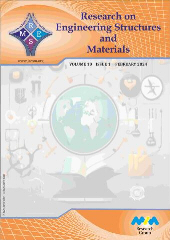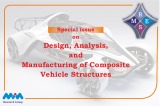Technical Note
Moisture susceptibility of waste ceramic tiles modified asphalt mixtures
Oguntayo Daniel1, Ogundipe Olumide2, Daikwo Jemimah3, Adeyemi Festus4, Aladegboye Oluwasegun3
1Department of Civil Engineering, Confluence University of Science and Technology, Osara, Nigeria
2Department of Civil Engineering, Ekiti State University, Ado-Ekiti, Nigeria
3Department of Civil Engineering, Landmark University, Omu-Aran, Nigeria
4Department of Civil Engineering, Ajayi Crowther University, Oyo, Nigeria
Keywords
Abstract
Wasteceramic tiles;
Durability;Asphalt Mixtures;
Tensile Strength
Ration;
Retained Strength Index;
Construction and Demolition waste
Waste ceramic tiles have been recognized as viable in producing asphalt mixtures. However, the primary concern is the assurance of its durability, especially in terms of moisture damage. Therefore, this research aims to investigate the moisture susceptibility of asphalt mixtures incorporating waste ceramic tiles (WCT). The coarse aggregates of 25 mm size were partially replaced with WCT at 0%-50% proportions. The Marshall Method of mix design was used to calculate the optimum bitumen content (OBC) at various levels of WCT replacement. Utilizing the retained strength index (RSI) and tensile strength ratio (TSR) tests, the moisture susceptibility of the mixes compacted at OBC was assessed. The results indicate that the continuous increase of WCT leads to decreased TSR and RSI values. The RSI ranges from 91.10%-81.90%, 74.91%-61.07% and 47.89%-41.05% at 1, 3, and 7-day curing, respectively. The TSR ranges from 89.27-74.73%, 71.48-63.81% and 58.02-46.79% at 1, 3, and 7-day curing, respectively. Nevertheless, it was determined that the WCT-modified asphalt mixtures met the TSR and RSI standards for asphalt mixtures with satisfactory moisture resistivity performance at 1 and 3 days of curing. For satisfying performance of WCT-modified asphalt mixtures, the study recommends an optimum proportion of 30% WCT.
© 2023 MIM Research Group. All rights reserved.


